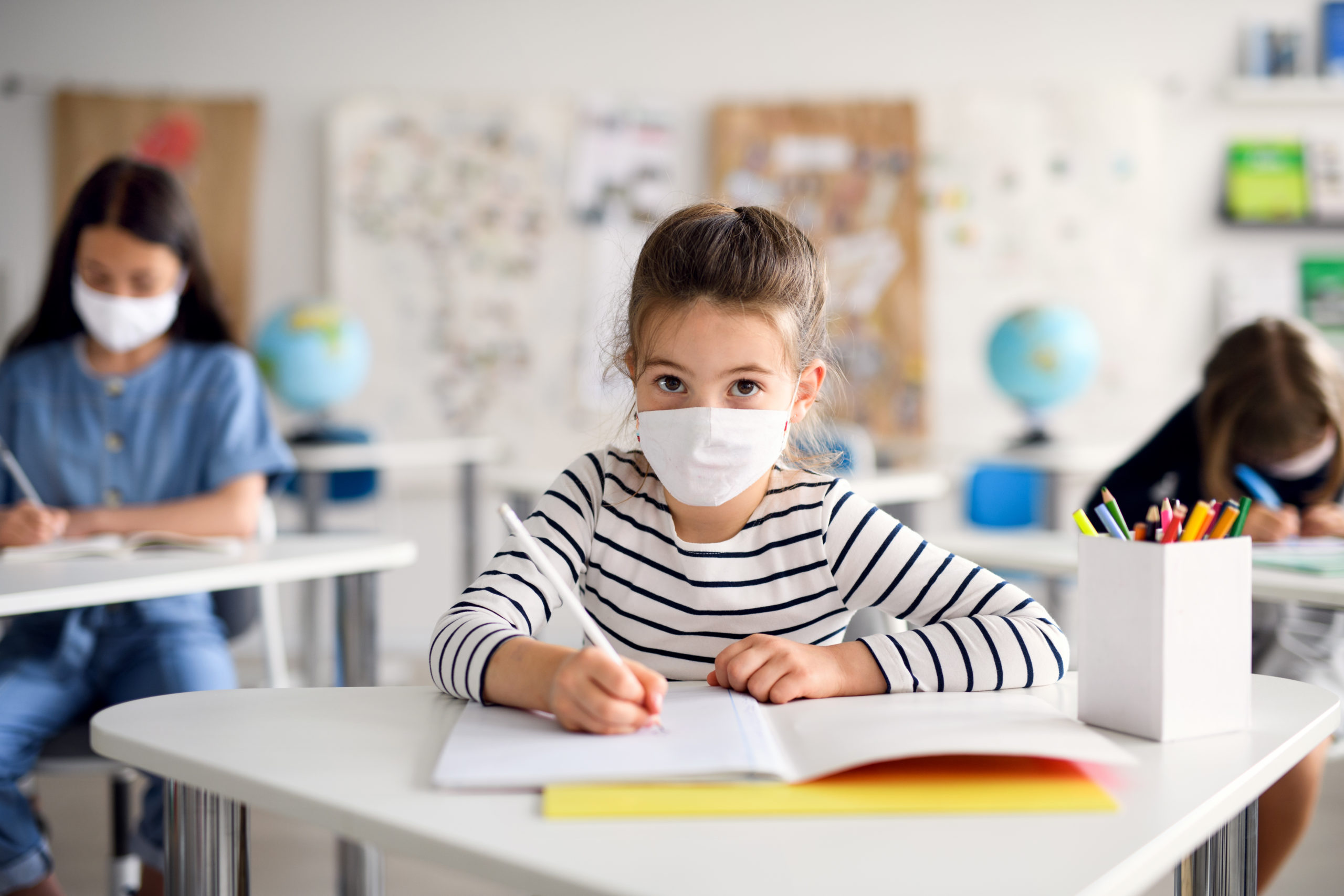No products in the cart.
News
During a pandemic, a new school year introduces additional stresses for children
Due to social isolation and school and company closures imposed around the country, nearly a third of parents polled in May stated their child was “already experiencing harm” to their emotional or mental health. According to Gallup, another 14% of parents said their children were “approaching their limitations, stating they could continue social separation for a few more weeks until their mental health suffered.”
During a pandemic, a new school year introduces additional stresses for children
The coronavirus epidemic is still going strong more than three months later, with no end in sight. And, whether digitally or in person, children are returning to school. According to experts, a new school year during a pandemic causes additional stress for youngsters. “Now they have to adjust to a new normal,” said Frank Ghinassi, president and CEO of Rutgers Health University Behavioral Health Care. “It’s not really going back to school, it’s going back to a new set of regulations at school.” “As a result, there will be tension, and many of those children will have to learn to adapt all over again, just as they did in February or March. Individuals are always stressed as a result of this adaptation or shift.”
The stress of a new school year combined with the pandemic, according to Amanda Fialk, chief of clinical services at The Dorm, a treatment community for young people, is a “perfect storm” that will impair youngsters’ mental health. According to Fialk, many kids have gotten nervous about a variety of things during the pandemic, including their social life and navigating technology, as well as spending more time on it. Children returning to regular classrooms may have separation anxiety from their family, with whom they had spent more time during lockdowns. They may also be concerned about the health of their relatives, she added. “I believe there is also a lot of worry and concern for their parents’ and grandparents’ health. Is it possible that they would make their loved ones sick if they go to school and then come home?” Fialk explained. She equated returning to society after a lockdown to being in a car accident and then having to get back into it.
However, while many children will suffer stress, not all of them will be able to articulate it, according to Ghinassi, who is also the senior vice president of RWJBarnabas Health’s Behavioral Health and Addictions Service Line. “We always attempt to give parents the idea of comparing the child’s behavior to their own child’s baseline,” he said. “When it comes to younger children, sadness may or may not manifest itself in the form of a melancholy or downcast expression. It can also be the other way around: the youngster becomes more irritated or hostile.” He went on to say that anxiety is the same way. According to Ghinassi, children may be reclusive, have GI symptoms, have altered sleep and eating habits, or show hostility and agitation. If a youngster no longer enjoys the things they used to enjoy, it could be an indication of anxiety or melancholy. He went on to say, “It’s not unlike the signs you find in adults.”
Ghinassi pointed out that in-person school has a wide impact on youngsters. “There’s the educational component and the learning component, but equally important is the socialization component, and that socialization is as crucial as academic learning in early developmental periods,” he said. Virtual learning will have an influence on many students, but “it will not have an equal impact on all children,” Ghinassi said. “We’re more concerned with kids who are living in circumstances where school was a place where they had two substantial meals a day, where school was a place where they were away from conflict at home,” Ghinassi stated. “Kids who are affected by social determinants, such as poverty, insecure housing, food insecurity, and domestic violence, will be exacerbated because they don’t get that time away from home.” Parents and teachers, according to Ghinassi, should be on the lookout for changes in their children’s conduct. “We really want to encourage folks if they observe changes in their children… you really want to encourage them to seek expert help at times like this. Now is the time to reach out to everyone in your community “he stated
Parents should validate and check in with their children at this period, according to Fialk. “Pay attention to their problems and validate their feelings. Let them know that their worries and frustrations are valid “she stated Fialk also advised parents to encourage their children to engage in self-care activities like as exercise and proper sleeping and eating cycles, as well as to ensure that their children are engaged in things that they enjoy. Parents must also be aware of their own actions, according to Michael Rich, director of Boston Children’s Hospital’s Center on Media and Child Health. “Part of it is that parents are figuring out how to get their work done or keep their employment,” Rich explained. “So, I think we need to train ourselves to really pay attention to the kids, to really listen to them, and not simply assume there’s nothing going on because they’re calm and not causing any issue.” Adults should lead by example, according to Ghinassi. “You want to show youngsters how to be resilient,” he stated. “I believe it will go a long way if parents say, ‘Yes, this is a difficult situation, but together, we’re going to manage it, we’re going to do well, and we’re going to take precautions.'” We’ll put on masks, keep a safe distance from one another, and wash our hands. ‘And we’re going to get through this together,’ she says. Ghinassi believes the long-term consequences this year will have on children will not be entirely negative. “One argument is that these kids will have a legacy of having lived through a really odd moment, which may contribute to continued stress for some youngsters,” he said. Others, on the other hand, will regard it as “a chance for them to test their own resiliency, and they were, in a sense, survivors of something.” For some, it’s almost a badge of honor.” Ghinassi likened today’s youth to the “Greatest Generation,” who lived through the 1918 influenza pandemic, the Great Depression, and two world wars. “We know from history that people find ways to stimulate resiliency,” he said. A good approach for youngsters to view the pandemic, according to Rich, an associate professor at Harvard Medical School and Harvard T.H. Chan School of Public Health, is that it is a moment of opportunity. “If you see this as an opportunity to learn something you wouldn’t normally have the opportunity to learn, to do something you wouldn’t typically have the opportunity to do because of academic expectations,” he continued, “then this may be a terrific opportunity.”
You can click on the image below to owning our products – Back to school with us




Homepage: Fullprintingteeshirt Store


